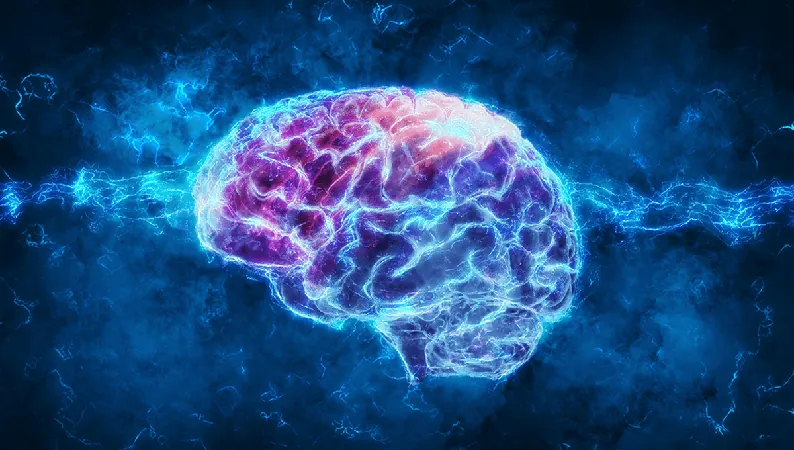
Shocking Study Reveals Human Thought Processes Only At 10 Bits Per Second!
2024-12-27
Author: Nur
Introduction
A groundbreaking study from researchers at Caltech has quantified a puzzling aspect of human cognition: our thoughts operate at a mere 10 bits of information per second. When you consider that the average download speed in the USA is projected to hit 93 megabits per second in 2024, the contrast is startling. How can our brains process information so much slower than computers?
Understanding the Bit
So, what exactly does this "bit" mean? In the realm of computing, a bit represents binary digits—values of either one or zero. However, in terms of information processing, we delve into concepts from information theory, famously introduced by Claude Shannon, often called the father of information theory.
To further illustrate this distinction, imagine texting a friend to inquire about their newborn’s gender. The response entails a single piece of information—a "Shannon"—which might be conveyed through a longer message composed of multiple characters. Here, a wealth of data is formed, yet it delivers comparatively little actual information.
Discrepancy in Processing Rates
The researchers highlight that while our visual cortex transmits an astounding 100 million bits per second to deeper areas of the brain, most of this data is largely irrelevant and carries minimal information. Indeed, information theorists are baffled by the discrepancy: our senses process sensory data at a staggering rate—estimated around a billion bits per second—while our conscious thoughts lag at a mere 10 bits per second.
Study Findings on Cognitive Processing
In their study, the researchers analyzed various tasks like typing out handwritten texts, where an advanced typist averages 120 words per minute, translating to approximately 10 keystrokes a second. However, they discovered that the actual informative content of those keystrokes is not as significant as one might assume. Due to the predictable structure of English, expert typists draw on redundancy that dramatically reduces the actual complexity of the information being processed.
The researchers highlighted this astonishing figure of 10 bits per second across a range of tasks, including playing popular puzzle games like Tetris and solving Rubik's Cubes, revealing a broader trend of human cognitive processing speeds lagging behind sensory input rates.
Implications and Future Considerations
Markus Meister, a co-author of the paper, expressed concern about the implications of this finding: “At every moment, we are filtering a mere 10 bits from trillions of sensory data. This raises significant questions about how our brains manage filtering so much information.
This revelation also underscores challenges and considerations for futuristic endeavors like brain-computer interfaces. Conceiving a system to amplify human cognition may run into the hard limits of our cognitive processing speeds, akin to trying to run high-speed internet through outdated hardware.
Further Inquiries into Human Cognition
The study also opens avenues for deeper exploration into human cognition—why can our nervous system process vast amounts of data in parallel while conscious thought remains stagnantly slow? The researchers theorize that 10 bits per second may be all that is necessary for survival, suggesting that our ancestors thrived in a world where critical life-and-death decisions were often made at a more leisurely pace.
While this research provides mesmerizing insights into the speed of human thought, it poses many further inquiries into the functioning of our brains, particularly the vast disparity between the monumental sensory input rates and the minimal throughput of our conscious behavior. As our understanding deepens, we may uncover even more mysteries about the extraordinary capabilities of our minds.
Conclusion
Stay tuned for more mind-bending revelations from the world of neuroscience!



 Brasil (PT)
Brasil (PT)
 Canada (EN)
Canada (EN)
 Chile (ES)
Chile (ES)
 España (ES)
España (ES)
 France (FR)
France (FR)
 Hong Kong (EN)
Hong Kong (EN)
 Italia (IT)
Italia (IT)
 日本 (JA)
日本 (JA)
 Magyarország (HU)
Magyarország (HU)
 Norge (NO)
Norge (NO)
 Polska (PL)
Polska (PL)
 Schweiz (DE)
Schweiz (DE)
 Singapore (EN)
Singapore (EN)
 Sverige (SV)
Sverige (SV)
 Suomi (FI)
Suomi (FI)
 Türkiye (TR)
Türkiye (TR)